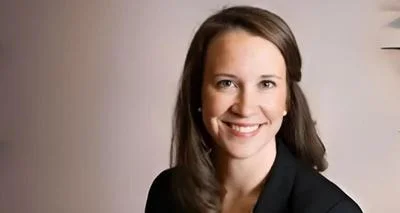Gov. Tony Evers | Gov. Tony Evers Official U.S. Governor headshot
Gov. Tony Evers | Gov. Tony Evers Official U.S. Governor headshot
MADISON — In his latest effort relating to the state's workforce, Gov. Tony Evers today signed Executive Order #211 creating the Governor’s Task Force on Workforce and Artificial Intelligence. The move comes as Gov. Evers announced earlier this month he is calling a special session of the Wisconsin State Legislature to take up his comprehensive plan to address the state's longstanding workforce challenges. This task force will gather and analyze information and produce an advisory action plan to identify the current state of generative artificial intelligence’s (AI) impact on Wisconsin’s labor market and develop informed predictions regarding its implications for the near term and future. The action plan will also identify how these workforce impacts may affect Wisconsin’s key industries, occupations, and foundational skillsets, explore initiatives to advance equity and economic opportunity in the face of these changes, and based on the impacts identified, recommend solutions related to workforce development and educational systems.
“Wisconsin is ready to pursue and advance solutions that will ensure the state can take on the workforce challenges that may come with a transformative technology like artificial intelligence and embrace a future where all Wisconsinites, including workers, employers, and job seekers, benefit from a dynamic, growing economy that increases efficiency with the adoption of new technology,” said Gov. Evers. “Establishing this task force will be critical in understanding, adapting to, and capitalizing on the transformations AI will bring, ensuring Wisconsin’s workforce and industries remain steady, stable, and robust in the face of technological advancement.”
AI systems being produced today can learn from data without being explicitly programmed, create new content, predict future outcomes, and have the potential to reshape entire labor markets. Today, AI is increasingly being used in a range of industries important to Wisconsin, including manufacturing, healthcare, education, transportation, agriculture, and more. Yet, due to the novelty of the technology that is being developed and implemented, many Americans are concerned with or apprehensive of this emerging technology, with a Forbes 2023 survey reporting that more than 75 percent of “consumers are concerned with misinformation from artificial intelligence tools.”
As the state continues ongoing efforts to address Wisconsin’s longstanding, generational workforce challenges, the Governor’s Task Force on Workforce and Artificial Intelligence will help ensure that Wisconsin remains competitive by establishing best practices for the implementation and utilization of AI technologies and identifying potential impacts of AI across industries, occupations, and skillsets with an eye toward greater equity and economic opportunity so all workers, employers, and job seekers in Wisconsin have the opportunity to benefit from this evolving technology.
The Governor’s Task Force on Workforce and Artificial Intelligence will be administered by the Wisconsin Department of Workforce Development (DWD) and will be chaired by DWD Secretary Amy Pechacek or a designee. The governor will appoint additional members to serve on the Task Force, including Wisconsin Department of Administration Secretary Kathy Blumenfeld or a designee, Wisconsin Economic Development Corporation Secretary and CEO Missy Hughes or a designee, representatives from the University of Wisconsin and Wisconsin Technical College Systems, and other individuals who may include representatives from state and local government, the business community, educational institutions, organized labor, the technology sector, and other leaders from relevant workforce sectors and industries.
This announcement comes as, earlier this month, Gov. Evers called a special session of the Wisconsin State Legislature to complete their work on the 2023-25 biennial budget and pass a meaningful, comprehensive plan to address the state’s longstanding, generational workforce challenges. July data from the U.S. Bureau of Labor Statistics show Wisconsin continues to see near record-low unemployment and record-high labor force participation. Still, Wisconsin’s small businesses, farmers and producers, hospitals and healthcare sectors, schools, and other critical employers and industries continue to face significant challenges filling available jobs. The governor’s plan would help reduce barriers to employment and prevent existing challenges from being exacerbated into an unmitigated crisis that would have calamitous consequences for Wisconsin’s workforce and help make sure the state can be successful and compete in the changing landscape of the global economic market. Details on the governor’s plan are available here.
Executive Order #211 is available here.
An online version of this release is available here.
Original source can be found here.






 Alerts Sign-up
Alerts Sign-up